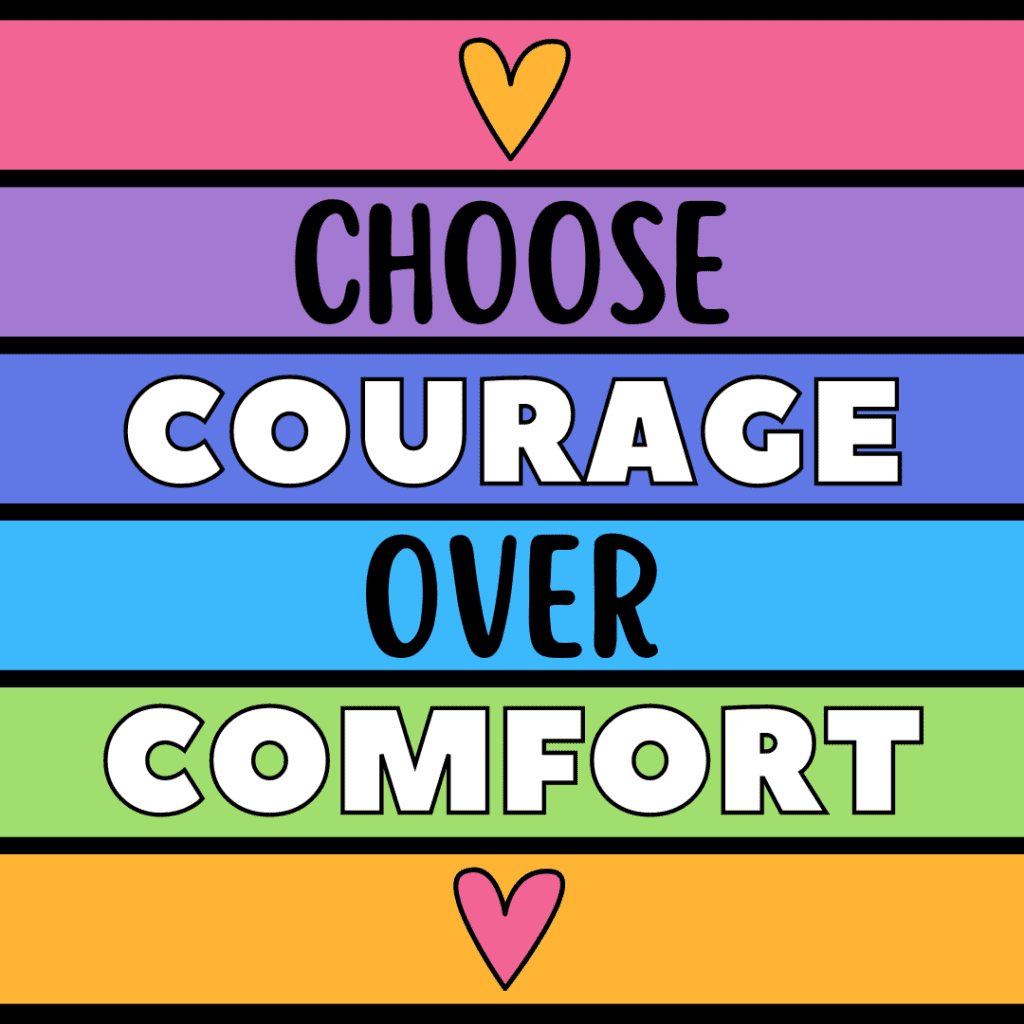
Only those who will risk going too far can possibly find out how far one can go.
T. S. Eliot
Do you ever feel like there’s something holding you back from pursuing your dreams or standing up for what’s right? Maybe it’s time to tap into an often-underestimated asset you possess: courage. Yes, courage, that incredible force within you, can become your most potent ally, guiding you through life’s trials and tribulations. Let’s embark on a journey to unpack this invisible, yet formidable, asset.
What is Courage?
Courage is not the absence of fear but the ability to act despite it. It’s the mental or moral strength to venture, persevere, and withstand danger, fear, or difficulty. It’s about facing the unknown, taking a leap of faith, and stepping out of your comfort zone, whether it involves making tough decisions, confronting injustice, or admitting mistakes.
Courage is a complex trait that is influenced by a variety of factors, including risk propensity.
Types of Courage
Understanding the different facets of courage can help you recognize it in your life and cultivate it further.
Intellectual Courage
This involves challenging our own beliefs, considering new ideas, and embracing uncertainty in the pursuit of truth and knowledge.
Moral Courage
Moral courage means standing up for what’s right, even when it’s unpopular, and facing criticism or punishment for your beliefs.
Physical Courage
Often recognized in acts of bravery during physical crises, this is the courage first responders and ordinary people exhibit when they risk their safety to save others.
Emotional Courage
Opening ourselves to love, forgiveness, and honesty, despite the risk of emotional pain or vulnerability, characterizes emotional courage.
Why Courage Matters
In Personal Life
Courage is the key to unlocking your true potential. It empowers you to face your fears, overcome adversity, and pursue your passions without hesitation. It’s about embracing life’s uncertainties and making the most of every opportunity.
In Professional Life
In the professional realm, courage enables innovation and leadership. It’s about taking risks, advocating for change, and standing by your convictions to drive progress and inspire those around you.
In Social Change
Courageous individuals are often at the forefront of social movements and reforms. Their bravery in challenging injustices and advocating for equity paves the way for societal transformations.
Building Blocks of Courage
Courage doesn’t appear out of thin air; it’s cultivated through consistent practices and mindset shifts.
Self-awareness
Being aware of your values, beliefs, and the source of your fears is the first step toward courageous action.
Empathy
Understanding and connecting with the emotions of others fuels the moral and emotional courage needed to stand up for rights and forge genuine relationships.
Resilience
The ability to bounce back from setbacks is crucial for maintaining courage in the face of adversity.
How to Cultivate Courage in Daily Life
Embrace Vulnerability
Allow yourself to be seen, truly and deeply. It’s in vulnerability that we find the greatest courage and connection.
Practice Resilience
View challenges as opportunities for growth. Each setback is a chance to strengthen your resilience and, thus, your courage.
Leverage Empathy
By connecting with others’ experiences, we find the courage to act on behalf of those who need our voice.
Set and Pursue Challenges
Actively seek opportunities that push you out of your comfort zone. Setting and achieving small goals builds confidence and courage.
Real-life Examples of Courage
From the suffragettes who fought for women’s rights to the civil rights leaders who challenged systemic racism, history is filled with people whose courage has shaped the world. Today, individuals continue to show courage, whether it’s whistleblowers exposing corruption, young people advocating for climate action, or ordinary individuals standing up against bullying or injustice in their communities.
Conclusion
Courage is indeed one of the most valuable assets you possess. It’s not about being fearless but about choosing to move forward despite the fear. Courage shapes who you are, defines what you stand for, and determines the impact you have on the world. Remember, it’s often the smallest acts of courage that can lead to the most significant changes. So, what courageous step will you take today?
Just Do It: Unpacking the Magic of the Power of Doing
FAQs
1. Can courage be learned?
Absolutely, courage can be cultivated through practice, self-reflection, and continuously stepping out of your comfort zone.
2. How do I know if I’m being courageous?
If you’re acting in alignment with your values, despite feeling afraid or uncomfortable, you’re demonstrating courage.
3. What’s the difference between courage and recklessness?
Courage involves thoughtful action despite fear, while recklessness disregards danger entirely, often without considering the consequences.
4. How can I support someone in a courageous act?
Offering your understanding, compassion, and encouragement can bolster their resolve. Being a supportive presence is invaluable.
5. Are there any adverse effects of courage?
While acting courageously often leads to positive outcomes, it can sometimes result in criticism, failure, or social ostracism. The key is embracing these risks as part of the journey towards growth and change.